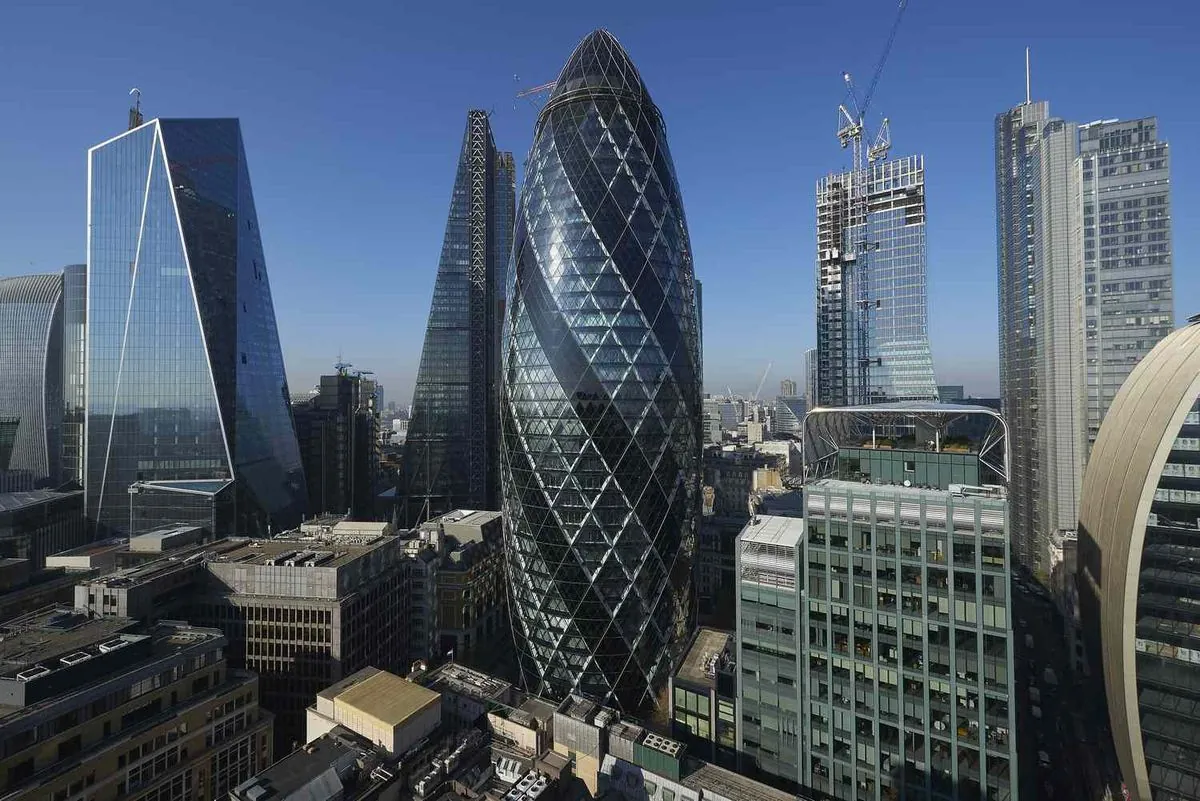The UK economy has shown signs of resilience and growth in August 2024, according to the latest S&P Global Composite Purchasing Managers' Index (PMI). The preliminary "flash" estimate rose to 53.4 from 52.8 in July, surpassing economists' expectations and reaching its highest level since April.
This uptick in business activity comes as a positive indicator for the UK's economic landscape, which ranks as the sixth-largest economy globally by nominal GDP. The PMI, a widely respected economic indicator derived from monthly surveys of private sector companies, suggests an expansion in both the services and manufacturing sectors.
The services sector, which accounts for approximately 80% of the UK's economic output, saw its PMI increase to 53.3 from 52.5 in July. This sector, encompassing financial services, tourism, and creative industries, has been a crucial driver of the UK's economic recovery.
Simultaneously, the manufacturing sector, contributing about 10% to the UK's GDP, demonstrated improved growth with a PMI of 52.5, its highest since June 2022. Notably, factories reported the fastest pace of job creation in over two years, a welcome development for the labor market.
Chris Williamson, chief business economist at S&P Global Market Intelligence, commented on the findings:
The survey revealed that cost pressures faced by businesses increased at the weakest rate since January 2021, while the PMI's gauge of businesses' price increases also fell. This easing of inflationary pressures is particularly significant given the UK's recent economic challenges, including a peak inflation rate of 11.1% in October 2022, the highest in 41 years.
These positive indicators come in the wake of the UK's recovery from a brief recession in 2022-2023, defined by two consecutive quarters of economic contraction. The current data suggests the economy is expanding at a quarterly rate of 0.3%, which, while slower than the first half of the year, represents a stronger pace than the typical growth of the past two years.
The improved economic outlook may influence the Bank of England's monetary policy decisions. As the UK's central bank responsible for maintaining price stability, it has been navigating a delicate balance between controlling inflation and supporting economic growth. The main interest rate reached 5.25% in August 2023, the highest since 2008, in response to inflationary pressures.
Economists now speculate that these latest figures could potentially lower the threshold for future interest rate cuts. However, the still-elevated nature of inflation in the service sector suggests that policymakers may proceed cautiously. A recent Reuters poll of economists indicated expectations for a single interest rate cut in November 2024.
As the UK continues to address economic challenges, including the ongoing cost-of-living crisis and the long-term effects of Brexit, these positive PMI readings offer a glimmer of hope. The country's commitment to reaching net-zero carbon emissions by 2050 adds another layer of complexity to its economic trajectory, requiring a delicate balance between growth and sustainability.
In conclusion, the August 2024 PMI data paints a picture of a UK economy gaining momentum, with businesses demonstrating resilience and adaptability in the face of ongoing global economic uncertainties.
